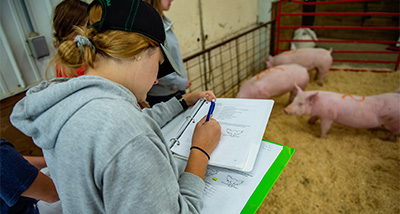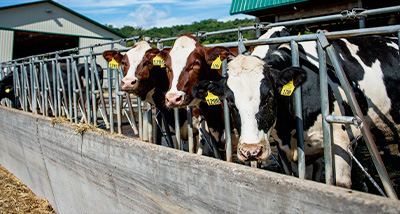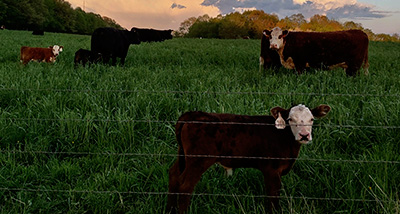

Food Science and Technology
Why Study Food Science and Technology?
Major | Science/Science Technology/Agriculture | CAFES
The food science and technology field comprises the processing, preservation, evaluation and distribution of food. As a food science and technology major at UW-River Falls, you’ll gain a solid foundation in both food science (food chemistry, microbiology, processing, etc.) and the basic sciences (physics, chemistry, biochemistry, etc.) to prepare you for a career in the food science field.
- View a four year plan for dairy foods management option
- View a four year plan for operations management option
- View a four year plan for science option
8
Living and Learning Communities
76%
Of Students Completed At Least One High-Impact Practice Before Graduation
700+
Students in Honors Programs

Food Science and Technology
cafes@uwrf.edu // 715-425-3535
Your Degree:
Undergraduate
Area of Study:
Science/Science Technology/Agriculture
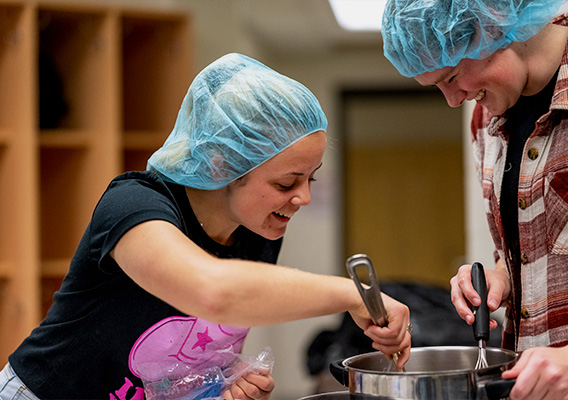
Skills and Learning Outcomes
- Apply science-based knowledge and principles of food science to food industry processes.
- Adapt to changing consumer demands in the food and beverage industry.
- Understand the intricacies of food processing and distribution systems, both locally and globally.
- Communicate effectively to a variety of audiences using valid and industry-specific information.
- Evaluate and interpret scientific data.
Types of Courses
- Ag Human Resource Management
- Dairy Manufacturing
- Food Bioprocess Technology
- Food Ingredient & Analysis
- Food Law and Regulation
- Food Processing
- Food Safety & Quality Assurance
- Meat Product Processing
- Product Development & Sensory Evaluation
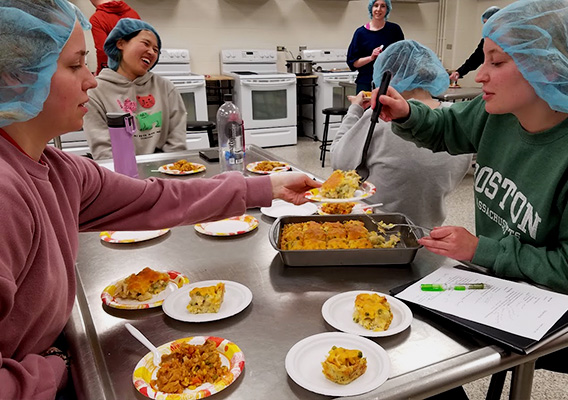
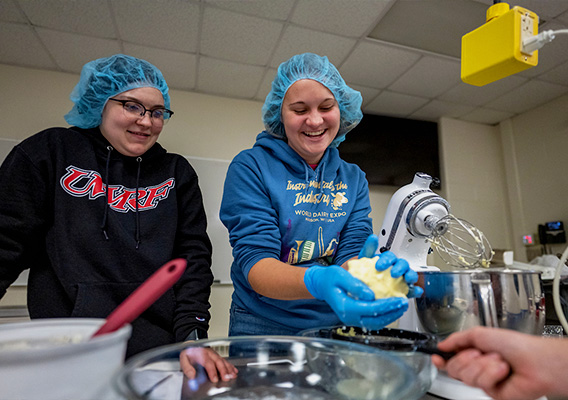
Potential Careers
With a degree in food science and technology, you’ll be prepared for a wide variety of future roles including:
- Food Process Engineer or Food Technologist
- Food Science Quality Manager
- Food Scientist or Research and Development Scientist
- Grain Refinery Operator
- Product Developer
- Sanitation Supervisor or Manager
Get More Information
Interested in learning more about UWRF or any of our 70+ areas of study? Just share your contact information and we'll be in touch!

